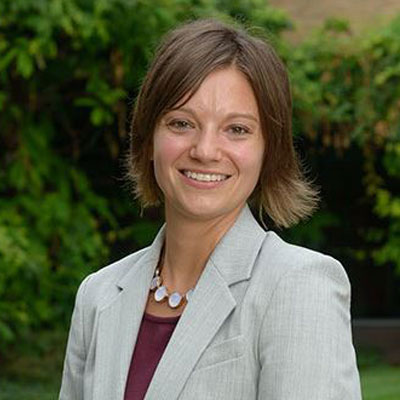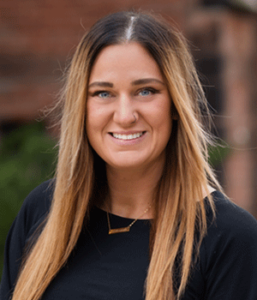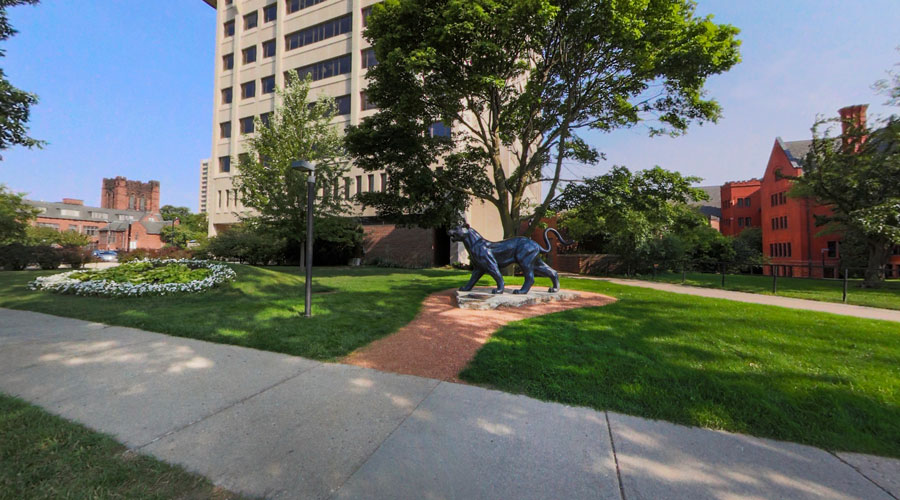Social Welfare PhD
The PhD in Social Welfare prepares students for work as faculty members, researchers and leaders in social work or criminal justice. Faculty expertise and course curriculum reflect a number of substantive areas within social welfare.
Program Type
Doctoral
Program Format
On Campus
UWM’s Social Welfare PhD
The goals and objectives of the PhD program reflect the school’s concern with urban social problems, social and economic equity and well-being, cultural diversity, and the empowerment of individuals, families, organizations and communities to effect change.
PhD Areas of Faculty Focus
- Applied Gerontology
- Child and Family Welfare
- Criminal Justice & Criminology
- Health and Behavioral Health
- Mental Health
- Resilience and Well-Being Across the Lifespan

My choice to come to UWM’s doctoral program was validated ten times over. The faculty’s commitment to my transition from a student to a scholar continuously impressed me and energized me to aspire to great things.
The Helen Bader School of Social Welfare includes the Social Work Department and Department of Criminal Justice & Criminology. Our PhD program includes faculty from both departments and serves students interested in either social work or criminal justice.
We also offer Joint MSW/PhD and Joint MSCJC/PhD options through which students can earn the Master of Social Work or MS in Criminal Justice and Criminology as well as the PhD in Social Welfare. Students may apply for either full-time or part-time study.
Study at a Top-Tier Research University
The University of Wisconsin-Milwaukee is ranked as a “highest research activity” campus by the Carnegie Classification of Institutions of Higher Education. This ranking, often referred to as R1, was earned by only 146 out of nearly 4,000 U.S. colleges and universities nationwide in 2022.
Extramural funding at the school is close to $8 million annually; the school brings in the most research dollars among professional schools at UW-Milwaukee.
Build Relationships With Faculty
Our program is small and close-knit, and we strive to maximize opportunities for students to build learning relationships with faculty. Students benefit from accessible faculty and are vital contributors to faculty research.
Follow in Our Graduates’ Footsteps
Our graduates have launched diverse and successful careers as faculty, post-doctoral scholars, research scientists and program directors.
In consultation with the major professor and as soon as possible after admission, each student designs a program of study to gain the knowledge and skills appropriate to their educational goals.
Students with master’s degrees in fields related to criminal justice and criminology or social work at the time of admission may be required to take up to 12 credits of master’s level coursework in order to ensure their familiarity with core concepts and perspectives in the social welfare knowledge base. The course(s) required will be determined on a case-by-case basis by the doctoral program committee in consultation with the student and their advisor.
A minimum degree of 42 graduate credits beyond the master’s degree are required, at least 36 of which must be earned in residence at UWM.
The program’s classroom curriculum uses a variety of approaches to convey content, including the following:
- One required foundation course in the philosophy of science (SOC WRK 901).
- Three specialization seminars:
- SOC WRK 932: Theory and Research on Behavioral Health Theory. This seminar focuses on behavioral health, and allows students to explore theoretical frameworks, including theories of change, for their research areas.
- CRM JST 970: Special Topics in Criminal Justice.
This seminar focuses on theory; specifically, how researchers and scholars develop theories, and subsequently, how to apply criminological theory to criminal justice policy and practice. - SOC WRK 791: Special Topics in Social Work.
This seminar focuses on social work theory, particularly related to human development and functioning, and how to develop and apply theory to research.
- Three research methods courses, including two courses covering foundational quantitative and qualitative methods, respectively. The third methods course explores systematic reviews and meta-analysis, providing strong training for the dissertation process.
- Three standard classes on applied statistics, including two courses that represent core training in doctoral level statistical analysis. The remaining course exposes students to advanced statistical methods of their choosing, (e.g., spatial analysis, structural equation modeling, big data, and others).
- Three proseminars that cover specialized content relevant to research and teaching. These include a course in post-secondary teaching methods (SOCIOL 794) and two courses within the school on research ethics and grant writing (SOC WRK 991).
- Two practicum credits (SOC WRK 999) used to expand students’ skills in teaching and research. These are taken in connection with their first teaching assistant and research assistant assignments.
- Two electives, usually taken outside the school, in areas that strengthen students’ knowledge in their substantive areas of interest.
- Examples of courses taken on campus include a seminar on social psychology in the Psychology Department, a program planning course in public health, and a course on social inequality in the Sociology Department.
- Examples of courses taken through UWM’s cooperative enrollment arrangements with other campuses include a psychopharmacology course at Marquette University and a maternal and child health course at the Medical College of Wisconsin.
- The expected time to complete the degree requirements is four to five years.
- International students must complete all additional requirements for international applicants. Refer to the Center for International Education website or contact them directly at isss@uwm.edu or 414-229-4846.
Criminal Justice & Criminology Specialization
Applicants for the criminal justice and criminology specialization of the PhD program must hold a master’s degree or equivalent in criminal justice, criminology, or otherwise titled degree in the criminal justice field.
Social Work Specialization
Applicants for the social work specialization of the PhD program must hold a master’s degree or equivalent in social work (preferred), a related field, or be assigned MSW-level coursework to fulfill any deficiency requirements. We require a copy of transcripts that demonstrate fulfillment of MSW degree, equivalent requirements, or that satisfy social work training deficiencies.
Joint Programs
Applicants for the joint Master of Social Work and PhD (MSW/PhD) or joint MS in Criminal Justice and Criminology (MSCJC/PhD) program must have a bachelor’s degree in any field and meet admission requirements of the UWM Graduate School. Successful applicants must be prepared to enroll as full-time students; the program does not offer an option for part-time study.
MSW/PhD
- The expected time to completion of degree requirements for the MSW is approximately two and one-half years, plus another one and one-half to two years for the PhD.
- Students who hold a BSW degree earned within the past five years at a CSWE-accredited program may be able to shorten the time to completion of the MSW degree by up to one year.
MSCJC/PhD
- The expected time to completion of coursework requirements for both the MS and PhD is approximately three years, plus another two to three to fulfill the PhD requirements (e.g., comprehensive exam, dissertation).
Students are accepted in the spring of each year for admission in the following Fall semester. Between three and five students are typically accepted in each cohort. The deadline to apply is Jan. 2.
To apply, enter the Graduate School’s online application portal.
Step 1: Fill in all blanks of the application form and submit the application fee.
Step 2: In the appropriate space, upload a current copy of your professional resume or curriculum vitae.
Step 3: Upload a copy of your personal statement. In the statement you should address:
- Your reasons for pursuing a doctoral degree.
- Your goals as a future scholar.
- The reason you believe our program will be a good fit with your interests.
- A topic or issue in the field you consider to be particularly challenging and worthy of study. You may also provide other information you consider relevant regarding your commitment to criminal justice or social work in the academic arena.
Step 4: In the “Documents” section, upload a sample of your written work that demonstrates your writing skills, ability to think analytically, and knowledge of theory, practice, and research. Published works reporting research results are best, but please indicate your precise role in the project if you submit a co-authored publication. Also acceptable is a sole-authored student paper, if written within the past five years.
The following materials are not acceptable evidence of your scholarship: bibliographies (even if annotated), group projects; book reviews, teaching/content outline for classes, and abstracts without full text.
Step 5: One official transcript from each academic institution you have attended.
Step 6: If applicable, documentation of English proficiency as defined by the Center for International Education.
Step 7: In the space indicated, identify at least three but no more than four individuals from whom you will request letters of recommendation. They should be persons who are familiar with your achievements and academic potential, including at least one current or former employment supervisor and a current or former instructor (a graduate instructor if applicable).
- Associate Professor, Criminal Justice & Criminology
- PhD Program Director
- rkonkel@uwm.edu
- 414-229-6874
- Enderis Hall 1115


